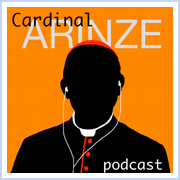Fundamental as the virtue of humility is in every Christian's life, in the priest's life this virtue is, besides, the 'sine qua non' condition of fruitfulness in his ministry. That is why, no doubt, the Divine Master, when training and forming His Apostles, never wearied of teaching them humility by precept and example. How they needed that lesson, how slow they were to take it in!... Human nature has not changed: we too have been imbibing the lesson of humility unceasingly during the long years of our formation, and yet we still remain so prone to seek exaltation rather than humiliation!... Let us then meditate on the necessity of humility - in our relations with God - with men - and for our own progress.
BEFORE GODHumility consists primarily in a recognition of our nothingness in the eyes of God and of our utter dependence on Him for every good that is in us. Now, who more than the priest ought to have this vivid sense of God's greatness and of his own deficiencies? Chosen by God and consecrated as the instrument of His glory, his whole life must express his daily prayer at Prime:
"Regi saeculorum, immortali et invisibili, soli Deo honor et gloria"... On the other hand, when he reflects on his own unworthiness for the sublime dignity to which God has raised him "de stercore erigens pauperem", he can have but one feeling and aspiration: "oportet Illum crescere, me autem minui". Truly, humility, the deepest humility, ought to be burnt on the heart of every priest who has a sense of realities. . .
Besides, how can he hope to succeed in his priestly work, without humility? Success in this work can only be achieved by the grace of God ("neque qui plantat est aliquid, neque qui rigat, sed, qui incrementum dat, Deus"), and only to the humble does He give grace: "Deus superbis resistit, humilibus autem dat gratiam."
* Let us endeavour to grow in true humility of heart before God, first and foremost in our prayers: our attitude and feelings ought always to be those we express at the Offertory of the Mass: "in spiritu humilitatis et in animo contrito suscipiamur, a Te, Domine".
In our works of the ministry we must beware of all secret pride and self-complacency: "non nobis, Domine, non nobis, sed nomini Tuo da gloriam";
In all trials (failures, contradictions, humiliations), whole-heartedly submit to God's holy will: "sicut Domino placuit, sic factum est; sit nomen Domini benedictum";
In all things, forget self and look up to God: and God will abide in us with His power: "Respexit humilitatem ancillae suae... Fecit mihi magna qui potens est."
WITH MENAs God looks with complacency on the priest who is humble of heart, so do men feel attracted towards their pastor when they see genuine humility in his behaviour towards them. Thus humility no less than kindness is a great asset to the priest in his quest for souls... Pride, arrogance, self-sufficiency make men close their hearts against those who would domineer over them, whilst a modest and humble demeanour wins favour and commands influence. . .
Priests are invested with God's authority, but let us remember the example and exhortation of Our Lord washing His disciples' feet: "Si ego lavi pedes vestros, Dominus et Magister, etc..." How well all apostolic men have understood and followed that precept of the Master! Let us but think of St Francis Xavier achieving his stupendous work in the East, not by displaying his title of apostolic Nuncio, but by making himself all things to all men, in utter forgetfulness and contempt of self: "Ego in medio vestrum sum sicut qui ministrat" ...
* Am I carefully avoiding all manifestations of pride and vanity in conduct and speech?
And in my thoughts, do I aim at St Paul's ideal: "In humility let each esteem others better than themselves"?
Am I content to remain, and spend myself with zeal, in the most humble works of the ministry?
Do I keep humbly patient when opposed, contradicted or wronged? ...
FOR OUR OWN SELvESHumility must be dear to us, above all for our own sake. Our first duty is to be virtuous priests, and we cannot be fervent unless truly humble: humility is the foundation of all solid virtue.
As the Cure d' Ars aptly put it: "Humility is to all other virtues what the rosary chain is to the beads: take away the chain, all the beads fall; take away humility, all other virtues disappear."...
Worse still: the absence of humility leaves the soul defenseless against the devil, the world and the flesh. Woe to the Christian, woe more to the priest in his exalted position, who proudly trusts in his own strength and exposes himself rashly to the occasions of sin.
On the other hand, what untold blessings will come to those who are humble? "The humble man God protects and delivers; the humble He loves and consoles; to the humble He inclines Himself; on the humble He bestows bounteous grace, and after he has been brought low raises him up unto glory" (Imitation of Christ, Bk II, ch. 2).
* Endeavour to grow in humility by the sincere acknowledgment of our faults and the remembrance of our frailty (daily examens of conscience, weekly confession).
Resist the temptations to glory in any good we have or do: "Quid habes quod non accepisti?" Cf. the
Magnificat of Our Lady.
Rejoice in humiliations, nay, long for them, looking up to Christ "qui humiliavit semetipsum...usque ad mortem, mortem autem Crucis".
"Deus, qui superbis resistis et gratiam praestas humilibus: concede nobis verae humilitatis virtutem, cuius in se formam fidelibus Unigenitus tuus exhibuit; ut nunquam indignationem tuam provocemus elati, sed potius gratiae tuae capiamus dona subiecti. Per eundem C.D.N." (Missal, Orationes diversae, n. 27 ).
________________________
Adapted from Alter Christus, Meditations for Priests by F.X. L'Hoir, S.J. (1958)
Meditation 33.###
Please pray for our priests and pray for vocations to the priesthood.













